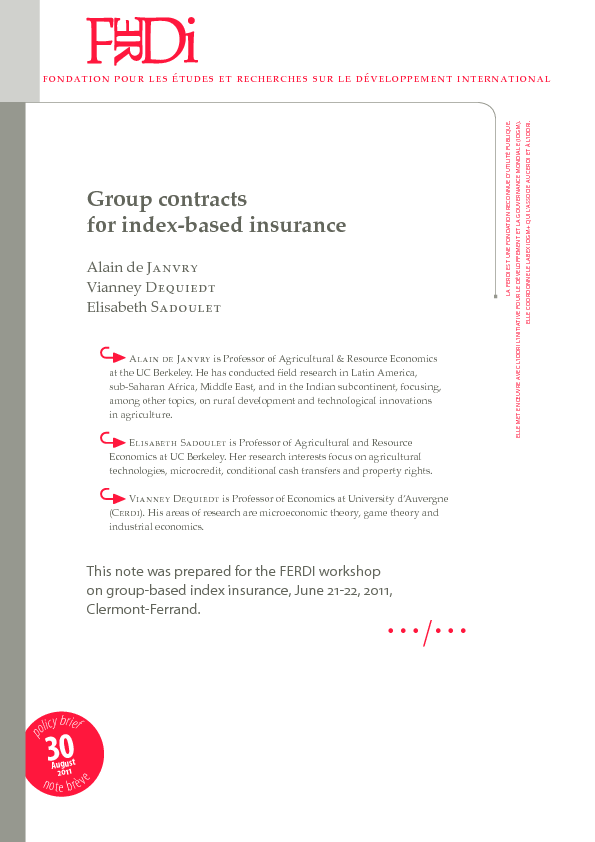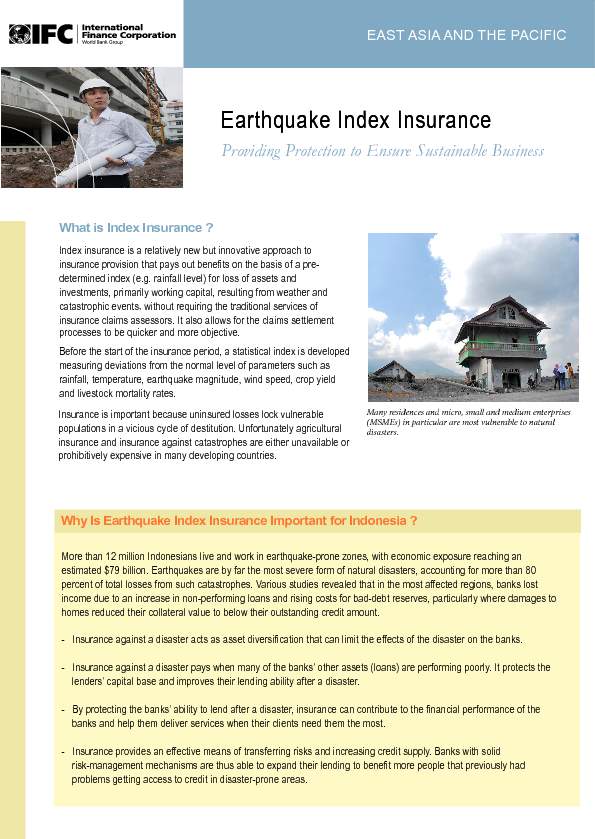
Content owner:
This note was prepared for the FERDI workshop on group-based index insurance, J…
Topics:
Index-based contracts are crucial innovations on the micro-insurance market. By making the contract contingent on the value taken by an objective and exogenous index, parties should manage to minimize transaction costs, in particular those due to imperfect and asymmetric information. In turn this innovation should allow poor people traditionally excluded from this market to have access to some insurance, most notably agricultural smallholders. In the last decade, many pilot programs have been set up throughout the developing world to evaluate index-based insurance products. So far, the

